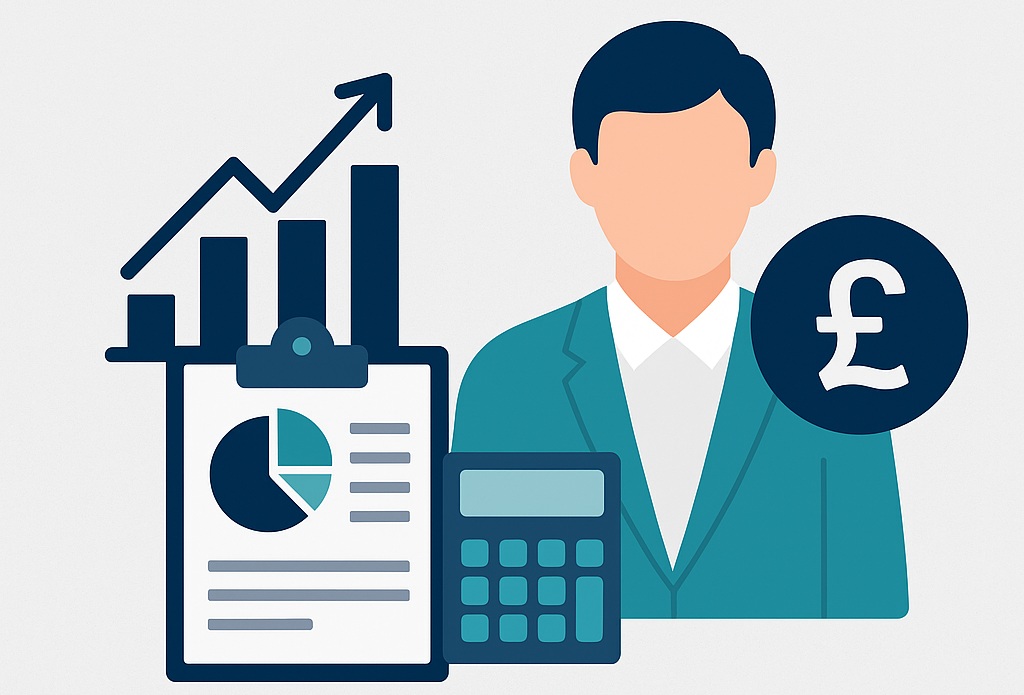If you think you know what an accountant does, you might want to think again when it comes to a management accountant.
This is because a management accountant has a different role from a traditional accountant.
This role involves strategising, planning, budgeting and decision-making, alongside number-crunching. It’s much more of a business advisory role, while still drawing on a depth of specialist knowledge.
What makes a good management accountant? It’s about listening carefully and analysing, as well as advising and acting on the behalf of business clients.
What Does a Management Accountant Do?
The duties of a management accountant are wide-ranging.
They involve the application of core accounting skills, including:
- Preparing regular financial statements and accounts, and
- Overseeing financial systems such as bookkeeping, credit control and payroll
- Monitoring spending and budgets.
However, they also draw on a variety of other skills that go beyond looking at income and expenses, such as:
- Analysing a company’s financial performance and forecasting future performance
- Recommending ways to reduce costs and increase profits
- Carrying out internal audits
- Making business decisions alongside other management team members.
The responsibilities a management accountant takes on will vary from business to business, but this role generally combines professional support with consultancy functions and other strategic aspects.
Why are Management Accounts Different?
For many companies, there is an established view of accounts and accounting, which is that these are things they depend on annually, at financial year-end.
Connected with this is the idea that accounts are very much about looking at what has already occurred.
In contrast, management accounts are generally more dynamic, involving frequent monitoring and analysis of financial performance throughout a financial year.
And they are as much about what’s ahead as what has already happened.
In this, they become a highly effective tool in business planning and strategic financial management.
Management accounts don’t necessarily include the same amount of detail as annual accounts, because they’re performing a different function.
Rather, they offer knowledge and insight that can shape and refine business planning.
What are the Benefits of Using a Management Accountant?
By using a management accountant, your business can benefit from a range of skills and qualities, including planning, analysis and professional insight.
A management accountant provides ongoing clarity about the state of your finances, and how they work in the context of your overall performance and strategy.
Management accounts support:
- Accurate monitoring of your growth
- Realistic planning for the future
- Optimisation of your processes.
This type of analysis, support and planning can also help with attracting funding, by providing them with the sort of robust evidence they need to come on board.
What Should You Be Looking For?
Management accountants play critical roles in business development. They help leadership teams make considered commercial business decisions. They have the expertise to provide clear-sighted analysis and forecasting.
Consequently, management accountants are in high demand. But if you want to maximise the benefits that a management accountant can bring, what qualities should you be looking for?
Besides having the professional qualifications of a chartered accountant, a good management accountant should have an excellent aptitude for analytics and numbers.
They must be able to work closely with a management team and be willing to put forward ideas where their expertise and insight will be crucial for decision-making.
They may need to display decisive leadership in a supervisory role when looking at procedures and processes.
They’ll need to be able to see their own role in the context of the wider organisation or enterprise and to be good at identifying trends for forecasting purposes.
Increasingly, with the growth of cloud-computing tools, management accountants must be up to speed with new technology and ready to adapt to or advocate digital accounting solutions. Many management accountants are now official partners with accounting software providers such as Xero.
Most of all, a good management accountant must be able to build trust with their clients rapidly, to ensure that their role is as effective as possible in offering valuable strategic support and advice.
Do You Need a Management Accountant?
Venn Accounts are UK chartered accountants providing cloud accounting services for small businesses and full management accounting support.
For more details about our management accounting services, please call us on 020 8088 2590, email enquiries@vennaccounts.com or fill in our contact form and we’ll be in touch as soon as possible.





